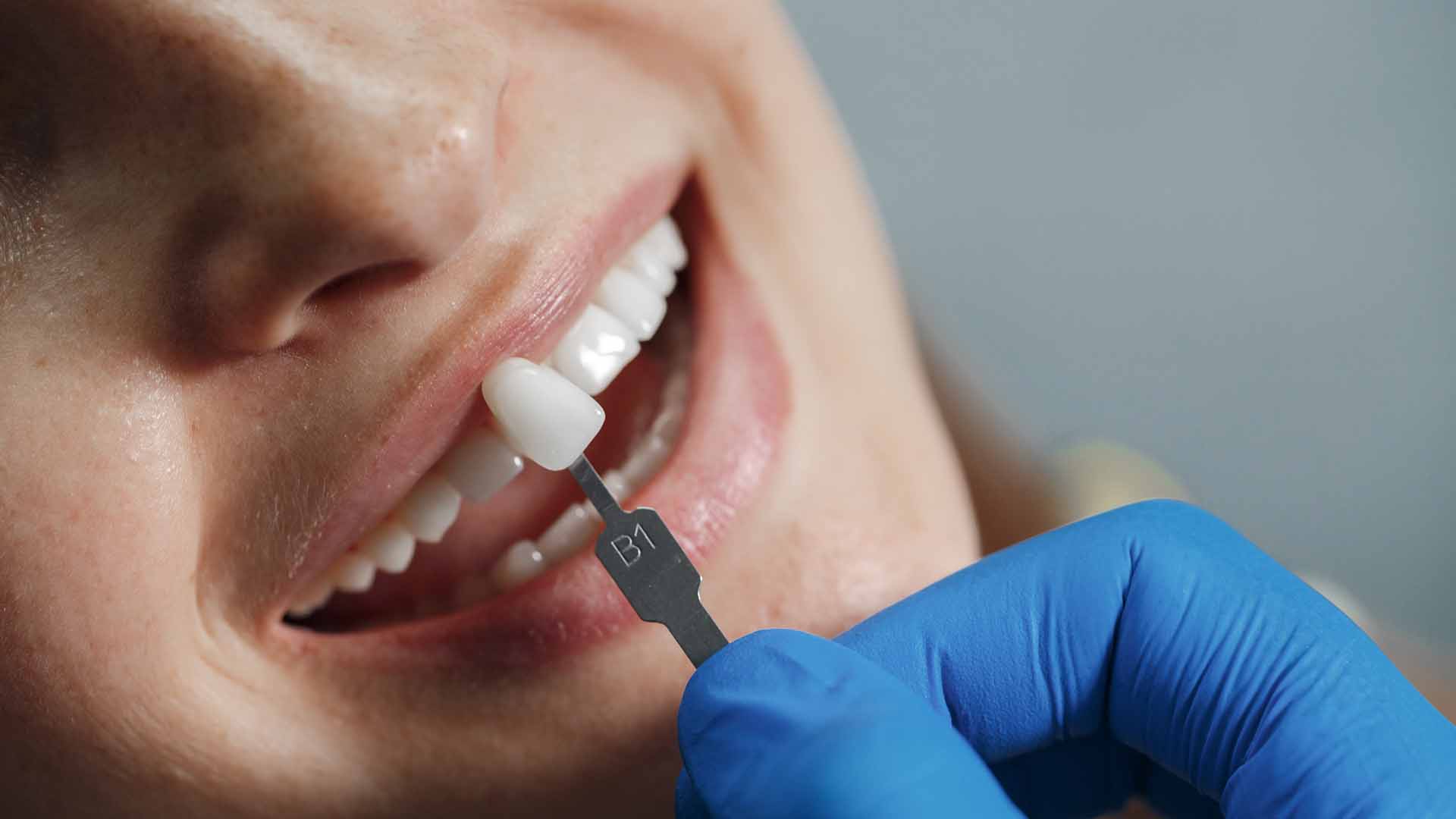If you’ve ever considered enhancing your smile with veneers, one of the first questions that may come to mind is, “How much do veneers cost?” Dental veneers are a popular choice for transforming smiles, but the cost can vary significantly based on a range of factors. This article will break down everything you need to know, from average costs to factors affecting the price, and even options for financing, so you can make an informed decision about this life-changing dental treatment.
What Are Dental Veneers?
Dental veneers are thin, custom-made shells designed to cover the front surface of teeth. They’re used to correct a variety of aesthetic concerns, such as discoloration, chips, gaps, or misaligned teeth. Veneers are typically made from porcelain or composite resin and are permanently bonded to the teeth to create a beautiful, natural-looking smile. Given their versatility and long-lasting results, veneers are an increasingly popular choice for individuals looking to invest in their dental
What Are Dental Veneers and How Much Is Veneers on Average?
Dental veneers are thin, customized shells that cover the front surface of teeth to correct a range of cosmetic concerns like discoloration, chips, or gaps. Veneers are often made from porcelain or composite resin and are permanently bonded to the teeth to create a natural-looking, beautiful smile. With so many seeking this cosmetic enhancement, one common question arises: How much is veneers in the U.S. on average?appearance.
Average Cost of Veneers in the U.S.
In the United States, the cost of dental veneers can vary widely depending on the material used, the number of veneers required, and the location of the dental practice. On average:
- Porcelain Veneers: These typically range from $900 to $2,500 per tooth. Porcelain veneers are highly durable and offer the most natural appearance. They are a popular choice for full smile makeovers.
- Composite Veneers: Composite veneers are a more budget-friendly option, usually costing between $250 and $1,500 per tooth. They’re less durable than porcelain but are a suitable option for patients who may be looking for a more temporary solution.
- Full Mouth Veneers: For those seeking a full smile transformation (often 20 teeth or more), the total cost can range from $10,000 to $40,000, depending on the material and location of the treatment. Some high-end practices may even charge up to $50,000 or more for a complete mouth of porcelain veneers.
Factors Influencing the Cost of Veneers
Understanding what contributes to the cost of veneers can help you better estimate your expenses and make an informed decision. Here are the main factors that influence veneer pricing:
- Material Choice
Porcelain veneers are more expensive than composite veneers due to their durability, stain resistance, and natural look. While porcelain is generally the preferred material for those seeking long-lasting results, composites offer a cost-effective alternative for those on a tighter budget. - Dentist’s Expertise and Location
The expertise of the dentist and the geographic location of the dental practice significantly affect the cost. Dental work tends to be more expensive in urban areas and regions with a high cost of living. Additionally, highly experienced cosmetic dentists may charge a premium for their skills and reputation. - Number of Veneers Needed
The more veneers you need, the higher the total cost. Many people opt for veneers on the most visible teeth (usually the top 6-8 teeth), while others choose a full set to ensure a consistent look. - Laboratory and Material Quality
High-quality veneers are typically fabricated in specialized labs and are crafted by skilled technicians. This precision and quality assurance add to the price but result in veneers that look natural and last longer. - Preliminary Procedures
Some patients may require preparatory work such as teeth whitening, gum contouring, or even orthodontic treatment before getting veneers. These additional procedures will add to the overall cost.
Cost Breakdown: Full Mouth Veneers
Opting for full mouth veneers is a significant investment, but it offers a completely transformed smile. For a full mouth of veneers:
- Porcelain Veneers: Usually cost between $20,000 to $50,000 for a full set, as they require meticulous craftsmanship and are customized for each tooth.
- Composite Veneers: A full set of composite veneers is generally more affordable, ranging from $10,000 to $20,000. However, they may require replacement more frequently due to their lower durability.
Are Veneers Worth the Investment?
Dental veneers can be a worthwhile investment, especially for individuals seeking to improve their self-confidence and overall appearance. With proper care, porcelain veneers can last 10-20 years, while composite veneers generally last 5-7 years. Although they come at a cost, veneers are known for their ability to provide a natural and lasting solution for a variety of cosmetic dental issues.
Financing Options for Veneers
Due to the high upfront cost of veneers, many dental practices offer financing options to make the treatment more accessible. Here are some common ways to finance veneers:
- Dental Financing Plans
Many dental practices partner with financing companies like CareCredit or LendingClub, which offer monthly payment options. Interest rates and terms vary, so be sure to discuss this with your dentist’s office. - Health Credit Cards
Some patients opt to use health credit cards specifically designed for medical expenses. These cards may offer low or zero-interest options if the balance is paid within a certain period. - Personal Loans
For those who prefer not to use credit, a personal loan from a bank or credit union can be an alternative. Interest rates and repayment terms will depend on your credit history. - Insurance Coverage
Veneers are usually considered a cosmetic procedure and are typically not covered by dental insurance. However, if the veneers are deemed necessary for reconstructive purposes, you may be eligible for partial coverage. It’s best to check with your dental insurance provider.
Veneers vs. Other Cosmetic Options: Is There a Cost-Effective Alternative?
If veneers seem beyond your budget, there are other cosmetic dentistry options that may help you achieve a similar look at a lower cost:
- Bonding: Dental bonding involves applying a tooth-colored resin to repair minor imperfections. It’s less expensive than veneers but doesn’t offer the same durability or natural appearance.
- Teeth Whitening: For those looking to improve their smile’s brightness, professional teeth whitening is a much more affordable option. While it won’t change the shape of your teeth, it can enhance your overall smile.
- Crowns: Dental crowns are another alternative for patients who need to improve both the function and appearance of their teeth. Crowns are generally more affordable on a per-tooth basis and are a better option for teeth with extensive damage.
How to Maintain Veneers for Long-Lasting Results
To maximize the lifespan of your veneers, follow these care tips:
- Practice good oral hygiene by brushing and flossing daily.
- Avoid biting hard objects, which can damage veneers.
- Limit staining foods and drinks, such as coffee, tea, and red wine, especially for composite veneers.
- Visit your dentist regularly for checkups and professional cleanings.
Final Thoughts on Veneer Costs
Investing in veneers can be life-changing for those seeking a confident, flawless smile. While the cost of veneers—especially for a full mouth—can be significant, many patients find the investment well worth it for the boost in self-confidence and the lasting beauty it provides. Consider your options, ask your dentist about available financing plans, and weigh the pros and cons of porcelain versus composite materials before deciding.
If you’re ready to take the next step toward a perfect smile, consult with a qualified cosmetic dentist who can provide a personalized treatment plan and cost estimate tailored to your needs.

